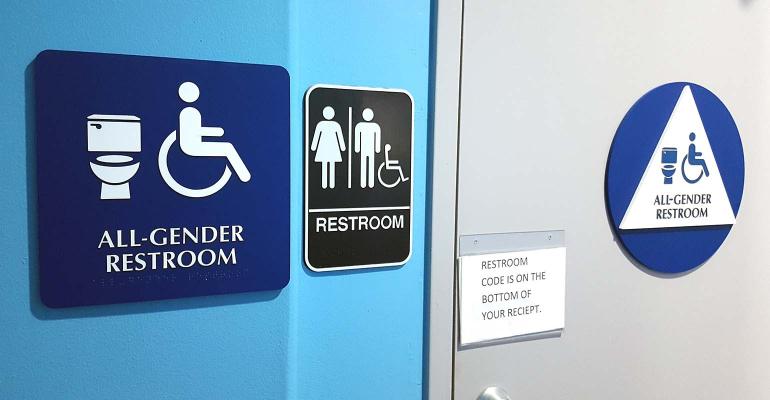Transgender individuals are in the midst of an ongoing fight to gain respect and equal rights. One state will pass a law that broadens their rights while another state further restricts transgender rights. The right to change their name or gender on government identification is essential in allowing transgender people to express who they really are. For some, changing their name or gender on their government IDs can be freeing after years of discomfort.
A name or gender change on a government document can signify a new start for a transgender individual. It can also affect the individual’s legal rights in other areas. For example, the inability to get updated IDs or to legally change one’s name can affect one’s ability to open new bank accounts, get a job or even find housing. Furthermore, without consistency across all documents with regard to one’s name, there is the possibility of ambiguity that leads to legal challenges against their estate plan or their status as the beneficiary of another’s estate.
The LGBTQ+ community has been downtrodden for generations. A long overdue culture-shift is changing how people interact with transgender individuals, enticing some states to enact more accepting laws. While the transgender community still faces challenges every day, some newly enacted laws demonstrate the needle is moving in their favor.
Laws relating to transgender rights are ever changing, both at the state and federal level. Keeping apprised of the most current laws is necessary for attorneys with clients who are transitioning.
States Making Changes Easier
Below are some recent legislative changes that make it easier for clients to change their names and gender.
Oregon is a trailblazing state for transgender rights. In 2013, Oregon passed Relating to Vital Statistics; Appropriating Money; and Declaring an Emergency, H.B. 2093 (2013-2014), Chapter 366 (Ore. Stat. 2013), which allows transgender people to change the gender on their birth certificate without requiring gender-reassignment surgery. This law has made it easier and more accessible for transgender people to correct their birth certificates to reflect their current gender identity.
In 2017, California passed the Gender Recognition Act, S.B. 179 (2017-2018), Chapter 853 (Cal. Stat. 2017), which allows individuals to change their gender on their state-issued IDs and birth certificate without any medical or judicial intervention.
New York passed its own Gender Recognition Act (N.Y. Assem. B. A5465D (2021-2022), (N.Y. Stat. 2021)) in 2021. New York’s law gives individuals the option to select “X” as their gender on state-issued IDs. By providing an option other than “M'' or “F,” New York has enabled transgender people to reflect their gender identity more accurately on their IDs. This act also repeals the requirement to publish a name change in the local newspaper, which helps to honor the privacy of transgender individuals.
On Nov. 16, 2022, New Jersey passed Executive Order No. 311, which exempts name changes from the Open Public Records Act. New Jersey has also introduced a bill that would waive the $50 fee for name change requests from transgender individuals. These measures will increase the privacy of transgender individuals while also making the process of changing one’s name more accessible.
States Making Changes Harder
While some states have passed less restrictive laws, others have passed more restrictive laws.
In April 2023, Texas sent Senate Bill 162 (A Bill to Be Entitled, S.B. 162 (2023-2024)
through committee. This bill would require an individual’s birth certificate to state their assigned gender at birth. If it passes, minor children would also be prohibited from changing the gender listed on their birth certificate.
North Dakota has passed HB 1139 (An ACT to amend and reenact sections 23-02.1-01, 23-02.1-13, and 23-02.1-15 of the North Dakota Century Code, relating to required elements of birth records, H.B. 1139 (2023-2024), (N.D. Stat. 2023) and HB 1297 (An ACT to amend and reenact sections 23-02.1-01, 23-02.1-13, and 23-02.1-15 of the North Dakota Century Code, relating to required elements of birth records, H.B. 1139 (2023-2024), (N.D. Stat. 2023), which requires that gender be specified on a birth certificate on birth and blocks individuals from changing the gender on their birth certificate, respectively. These two bills pose immense challenges for transgender individuals trying to validate their gender-dysmorphic feelings.
South Carolina has a bill in committee (Vital Statistics - Changes to Birth Certificates, S.B. 0364 (2023-2024), (S.C. Stat. 2023)) that seeks to restrict gender changes on one’s birth certificate to either male or female. It will also require affidavits and a petition to change gender before a transgender individual can successfully alter their birth certificate.
Missouri’s Senate Bill 14 (Modifies Provisions Relating to Amending Birth Certificates, S.B. 14 (2023-2024), (M.O. Stat. 2023)) is currently in committee. It aims to prohibit gender changes on birth certificates unless there’s a documented, medically-verifiable disorder of sex development. This bill essentially disregards the plight of transgender people by prohibiting them from seeking comfort through gender change.
Attorneys’ Role
Per the most recent published report, only 21% of transgender people who have transitioned have been able to update all of their IDs with their new name and gender. Another third of transgender people who have transitioned haven’t been able to update any of their IDs.
In the realm of professional planning, practitioners need to ensure that their client’s estate-planning documents accurately and consistently reflect their legal identity. Furthermore, the LGBTQ+ community is terribly underserved when it comes to professional services, and those professionals who work to remain apprised of the evolving laws when it comes to this community will be well positioned to market their services and assist a group of people who are genuinely in need.
Scott Glatstian is at attorney at Rosenblum Law





